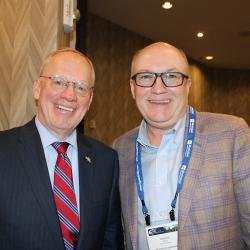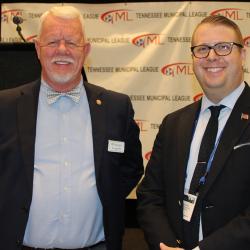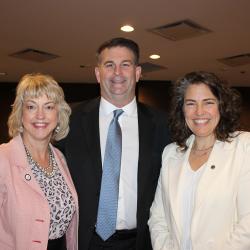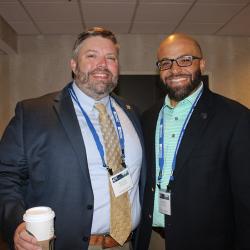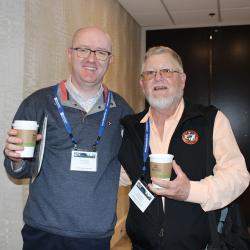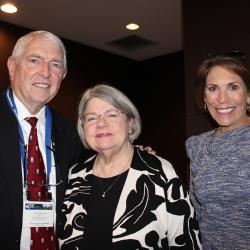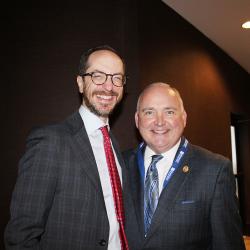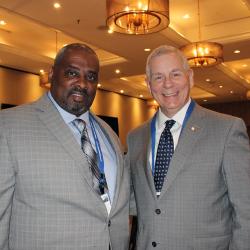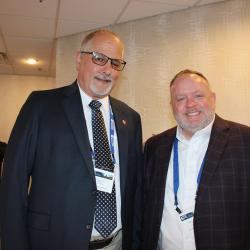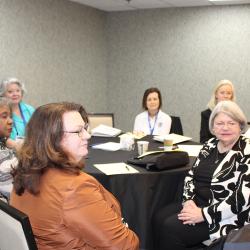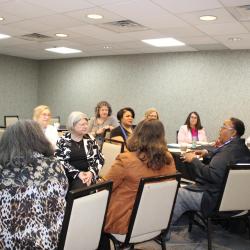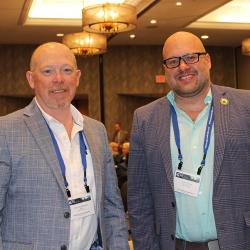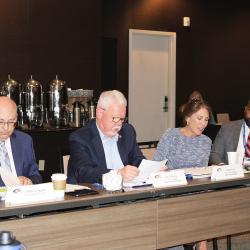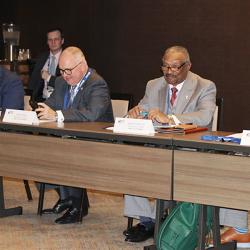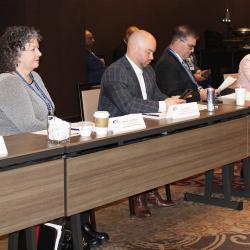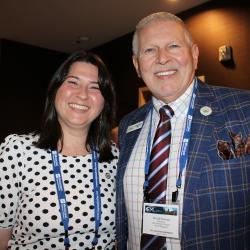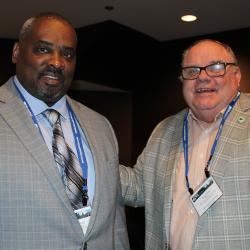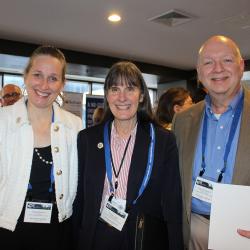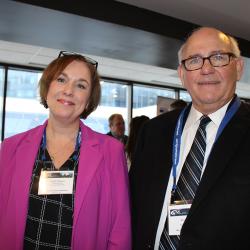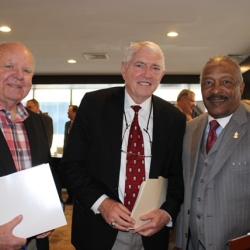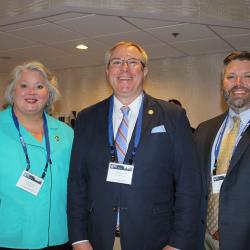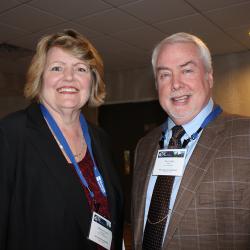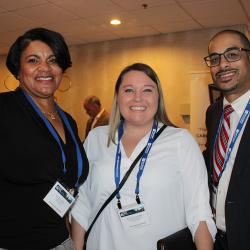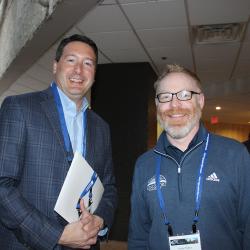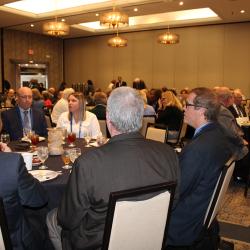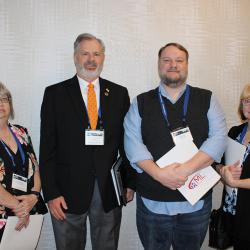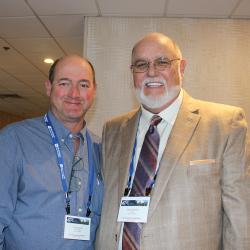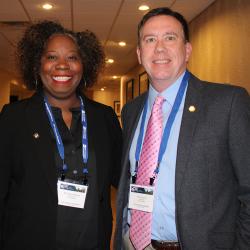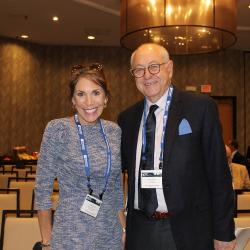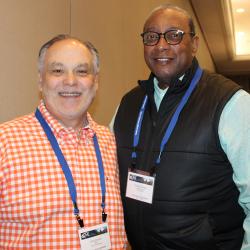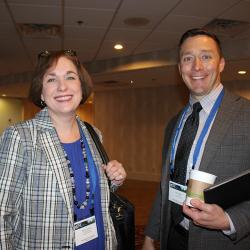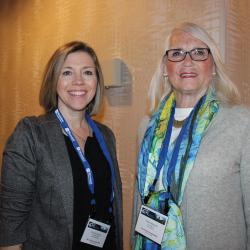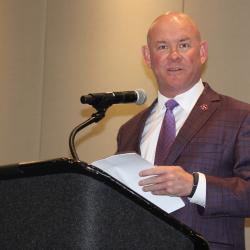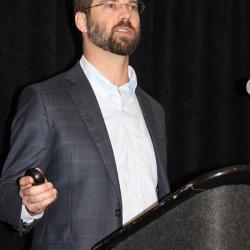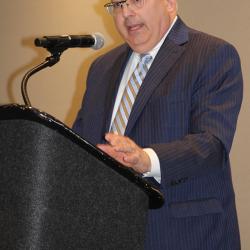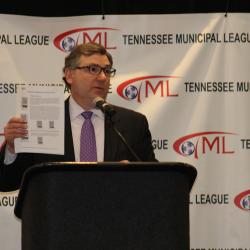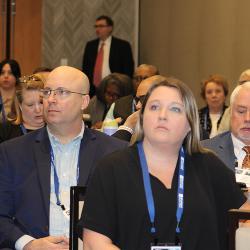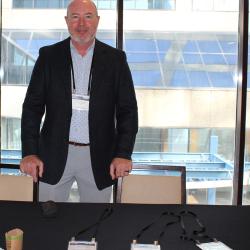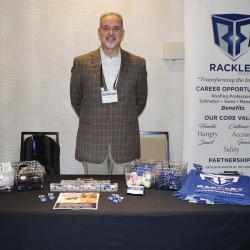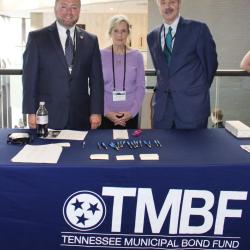City leaders talk urban growth, property tax cap, other issues at TML Legislative Conference
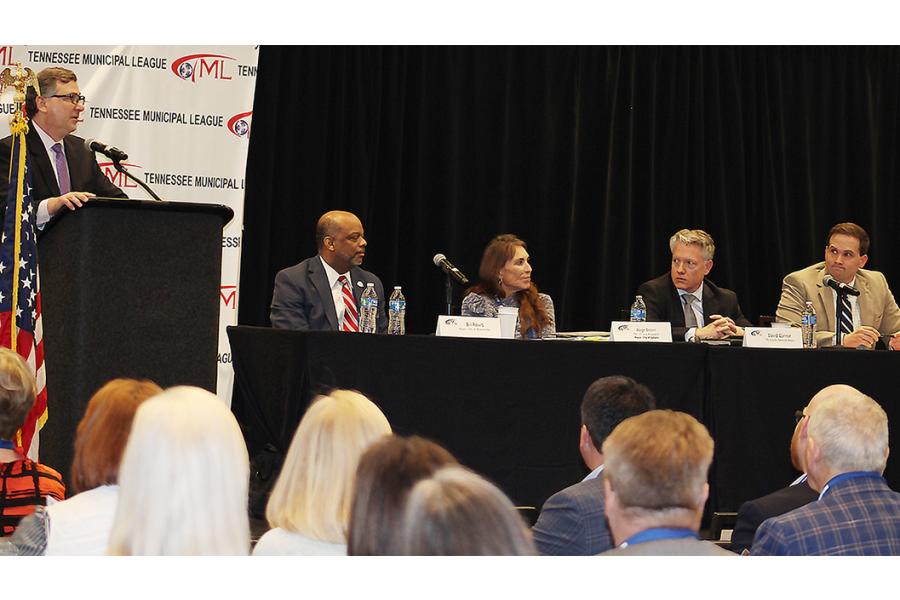
Municipal officials from across Tennessee gathered to discuss issues including a proposed property tax cap bill, potential changes to increase property reappraisals, managing community growth, Tennessee’s economic future, and First Amendment implications of social media use by government officials at the 2024 TML Legislative Conference, held in Nashville March 4-5.
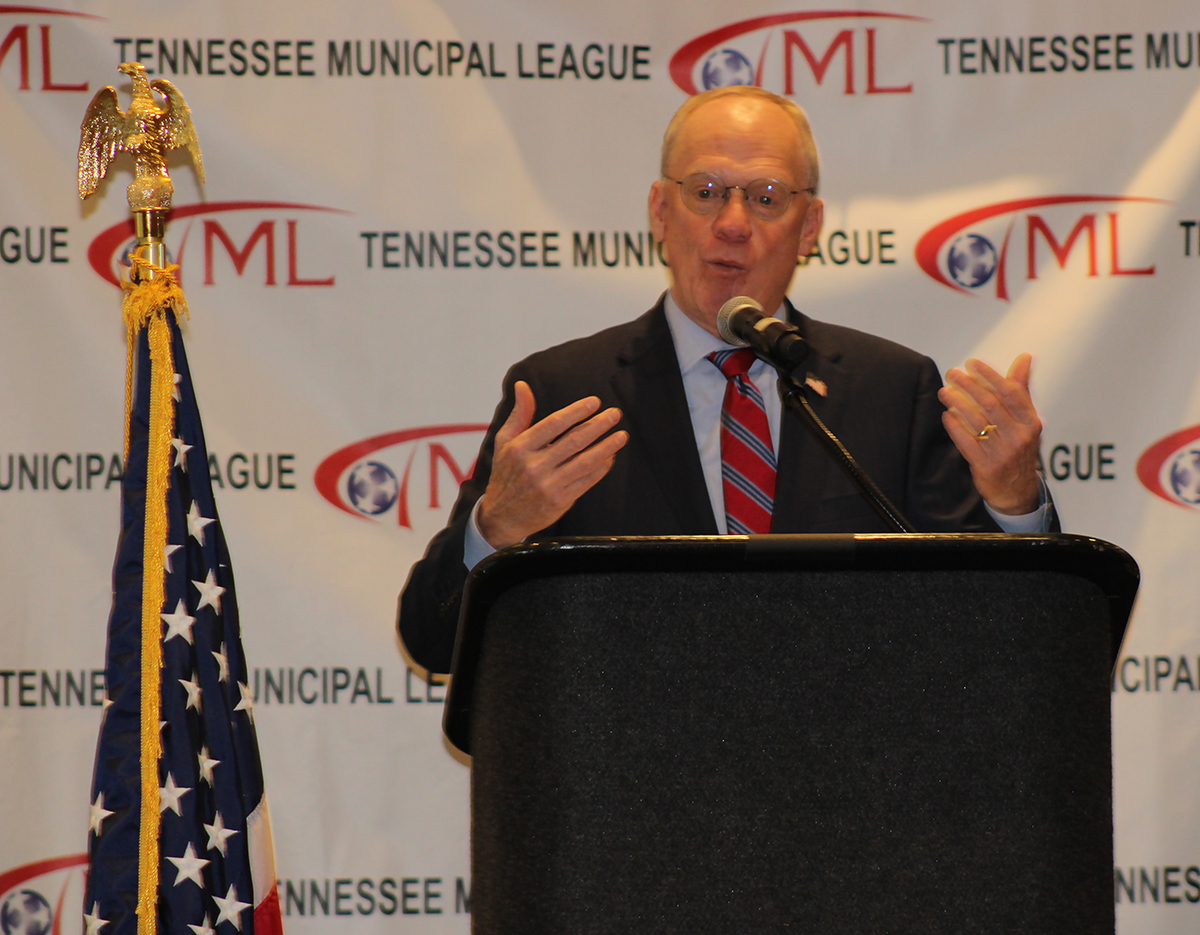
Members heard from U.S. Rep. John Rose, Tennessee Comptroller Jason Mumpower, University of Tennessee Research Associate Professor Larry Kessler, Sycamore Institute Executive Director Brian Straessle, and attorneys Sam Jackson and Bethany Vanhooser from Spencer Fane, among others, during the two-day event.
Rose detailed how federal leaders are working to address issues including housing, critical infrastructure needs such as water and wastewater, and transportation and transit programs.
“There are many in Washington who have it as a goal to support our municipalities,” Rose said. “I know that comes as a surprise because, for many of you, your interactions with Washington have not been as pleasant as we can hope. There are many ways that the federal government and Congress are working with you, including many programs that are helping local leaders in meeting transportation, infrastructure, rural development, and housing needs.”
Mumpower detailed a proposal his office has brought before the General Assembly that would increase how often property reappraisals occur from the current every five-to-six years to an average of every two, three, or four years depending on certain factors.
Additionally, Mumpower said the state is seeing a “normalization” of its revenue as the state is still bringing in revenue 40% higher than it was pre-pandemic, but lower than it has been in previous years. Less federal money coming into the state as well as slowing economy will mean the state’s budget will be different than it has been in the recent past.
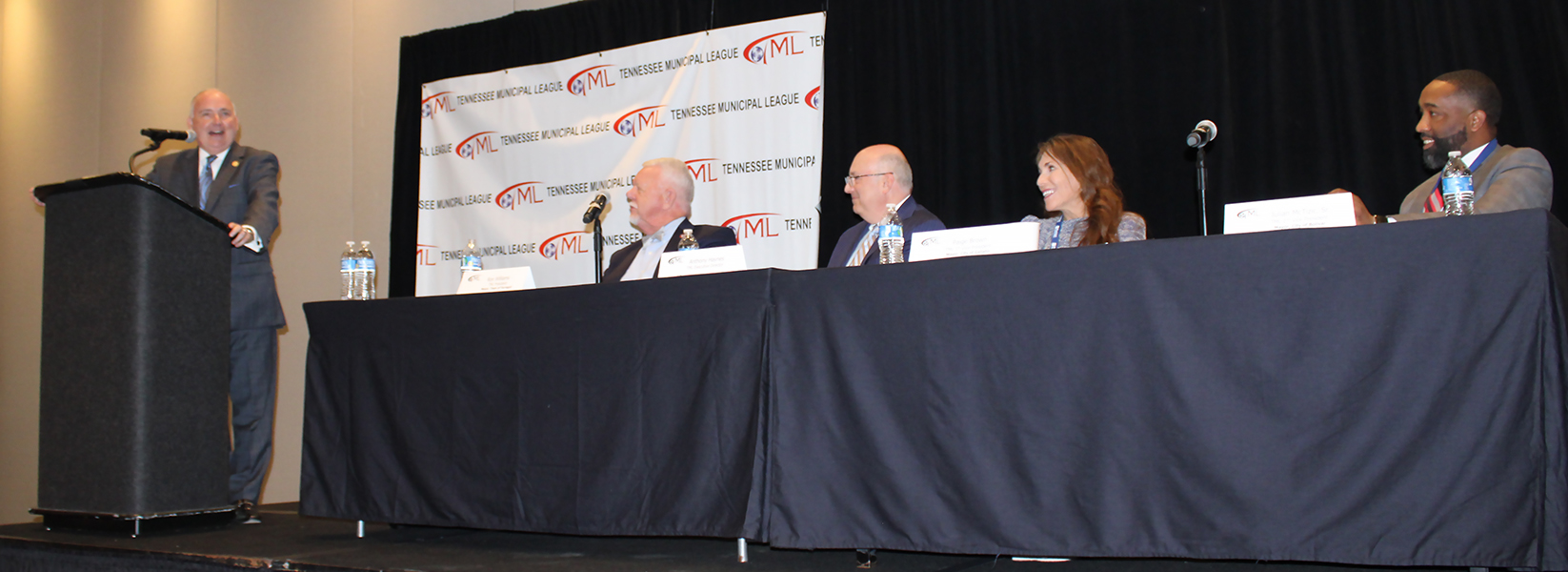
Cleveland Mayor Kevin Brooks presented a call-to-action regarding the proposed Senate Bill 171-House Bill 565 that if passed would implement a property tax caps. Brooks explained how this proposed cap could severely limit the ability of cities to provide necessary services and infrastructure, especially as populations continue to grow. As a former state lawmaker himself, Brooks said the legislature is known for busting its own spending cap – the Copeland Cap – which requires state expenditures not to grow faster than the state economy.
Dr. Kessler said consumer spending spurred economic growth post-pandemic, but higher prices and inflation are eroding that power. While home prices on average in Tennessee are lower than the U.S. average, Kessler said the gap is starting to narrow with home prices in many major metropolitan areas of the state having exceeded the national average for a few years.
The high prices of the home market are also driving up rental prices as more people seek rentals when they cannot buy. Kessler noted that high housing prices can lead to slowdowns in other areas of the economy as residents struggle to finance basic needs.
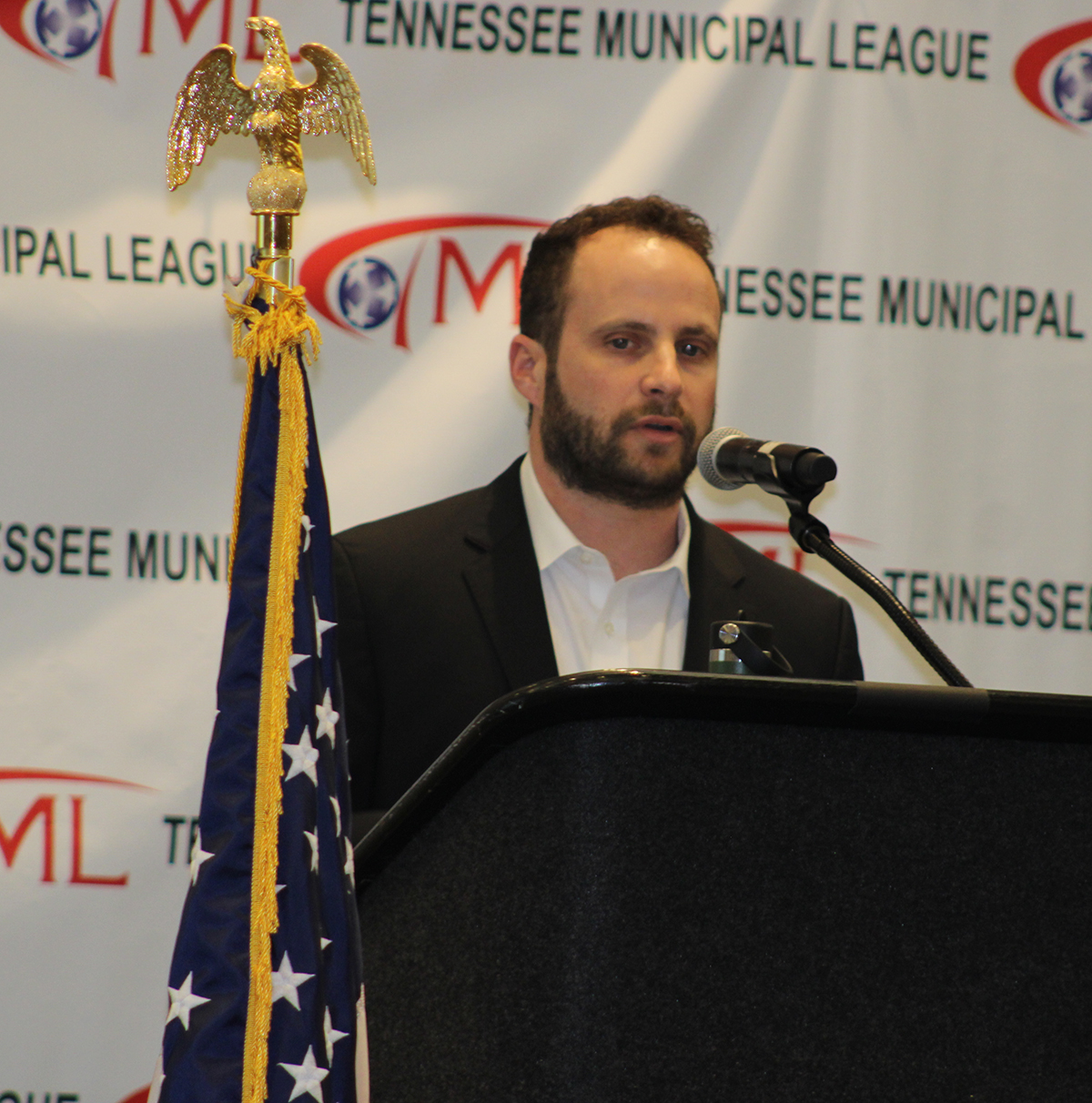
Tennessee’s tax revenue growth has slowed, partially because the economy is rebounding from the pandemic as well as a slowdown of online sales tax revenues. Kessler said a lot of the change is due to policy changes, such as the grocery sales tax holiday as well as cuts to the franchise and excise tax.
A panel comprised of Gallatin Mayor and TML 1st Vice President Paige Brown, Brownsville Mayor Bill Rawls, Tennessee County Services Association Executive Director David Connor, and Farm Bureau Public Policy Division Director Kevin Hensley discussed the challenges of balancing urban growth and how municipalities and counties can work together to facilitate incoming businesses and residents while maintaining green spaces and agricultural land.
Straessle detailed how the Sycamore Institute works as an independent, nonpartisan public policy research center and how the organization has worked to deliver both a yearly analysis of the governor’s proposed budget as well as research for the Legislature on issues including federal education funding, youth mental health issues in the state, gun violence, and healthcare.
Jackson and Vanhooser discussed how both municipalities and government officials with social media accounts must take care in what they post, deleting comments, and how they interact with the public on those accounts as social media increasingly becomes a public form.
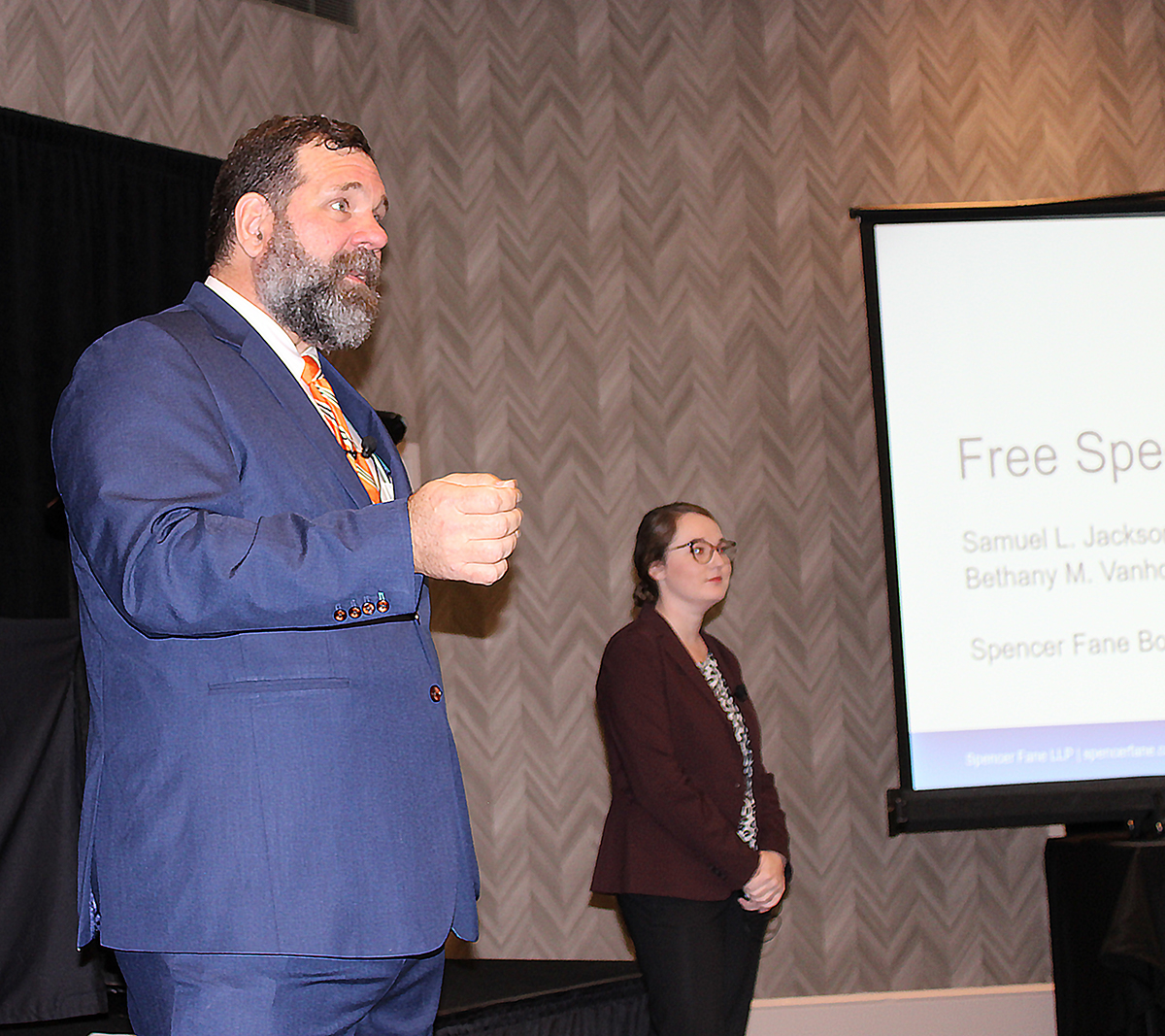
The U.S. Supreme Court is expected to rule by June to resolve two conflicting lower court rulings – one in the Sixth District Court to which Tennessee belongs and another from the Ninth District Court – about whether public officials can block accounts for accessing their social media accounts. Jackson noted that while public officials are entitled to “private” social media accounts, posting about government business on a “private” account may, in fact, make the account legally considered public.
The conference also allowed city officials the chance to meet with their respective lawmakers as well as attend floor sessions of both the Senate and House at the State Capitol.
Representatives of TML Partner Programs – including American Fidelity, Everywhere.care, GovCard, GovDeals, PATH, Public Entity Partners, Rackley Roofing, SERVEPRO, the Tennessee Municipal Bond Fund, VC3, and Voya – were also on hand to discuss how they can help municipalities.

